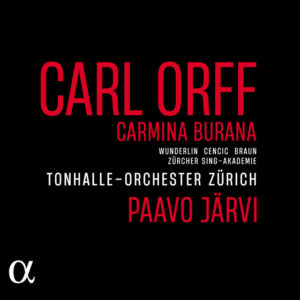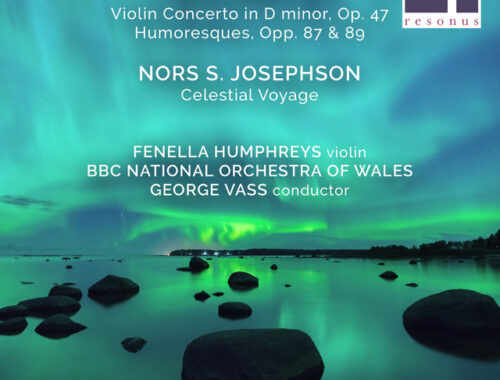GRAMOPHONE Review: Orff Carmina Burana – Zurich Tonhalle Orchestra & Choruses/Järvi
 The stakes are always higher when a piece is as over-exposed, as much a part of popular culture, as this one. Carl Orff’s ribald romp has kept amateur (and professional) choral societies super-busy over many decades and even a fading brand of aftershave was given new life to the strains of ‘O Fortuna’. Chorus and percussion rule here and as an erstwhile player myself I can vouch for the power that the kitchen department exerts over the proceedings.
The stakes are always higher when a piece is as over-exposed, as much a part of popular culture, as this one. Carl Orff’s ribald romp has kept amateur (and professional) choral societies super-busy over many decades and even a fading brand of aftershave was given new life to the strains of ‘O Fortuna’. Chorus and percussion rule here and as an erstwhile player myself I can vouch for the power that the kitchen department exerts over the proceedings.
Paavo Järvi runs a tight ship in this spirited rendition and his chorus – the Zürcher Sing-Akademie – is lean and punchy and impeccably tuned. Better yet they are a vital extension of the percussion section in rhythmic terms using the percussiveness of the medieval latin text as the purveyor of all lustiness be it sexually or alcoholically induced. I was quickly on board once the bass drum was given its head in the punchy grace notes of ‘Fortune plango vulnera’ and indeed felt the rush of excitement through the ‘Tanz’ of the ‘Uf Dem Anger’ segment with its vibrantly rustic pizzicato and the brilliant fanfares of ‘Were diu welt alle min’ at the close of part one.
Järvi is also alive to the sensuousness of the piece, the fragrant Arcadian rapture of it. Piano and glockenspiels convey the cool clean air of it. And he has excellent soloists who really relish the words – not least baritone Russell Braun who phrases with such rapture in numbers like ‘Omni sol temperat’ and who (and this is rare) really has the top notes for ‘Estuans interius’. His suitably debauched Abbot makes a meal of ‘Ego sum abas’ while the gentlemen of the chorus ‘In taberna’ wear their inebriation with panache.
I like that the ‘roast swan’ – counter-tenor Max Emanuel Cencis – does not over-cook (pun intended) the parody and that the soprano Alina Wunderlin is knowing without seeming so. I’d have taken a little more time over ‘In trutina’, surely the most delectable number in the piece. Its gorgeousness – especially in the final verse – begs a little more room to take in its perfume.
My favourite moment is still the dazzling vision of ‘Blanziflor et Helena’ glockenspiels shimmering at the reveal – and as last chords go Järvi really milks the pay-off here. I think there are moments of greater individuality in the celebrated recordings of Jochum and Frühbeck de Burgos but we should welcome Järvi to the ever-growing stable.
You May Also Like

GRAMOPHONE: From Where I Sit – September 2019
12/09/2019
GRAMOPHONE Review: Sibelius / Josephson Violin Concertos Fenella Humphreys BBC NOW/Vass
12/08/2021

